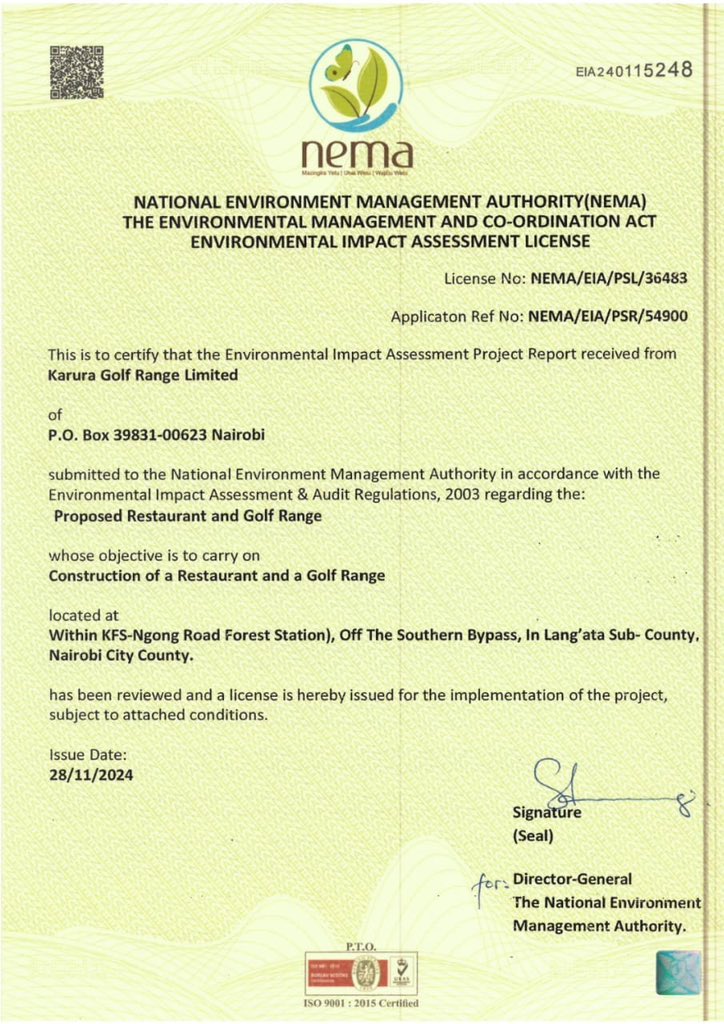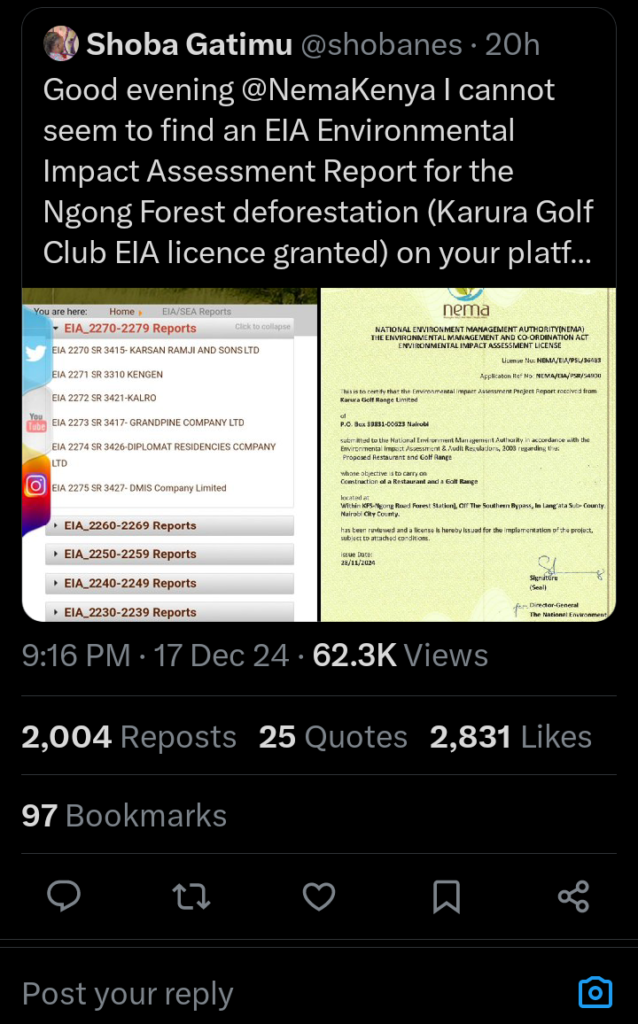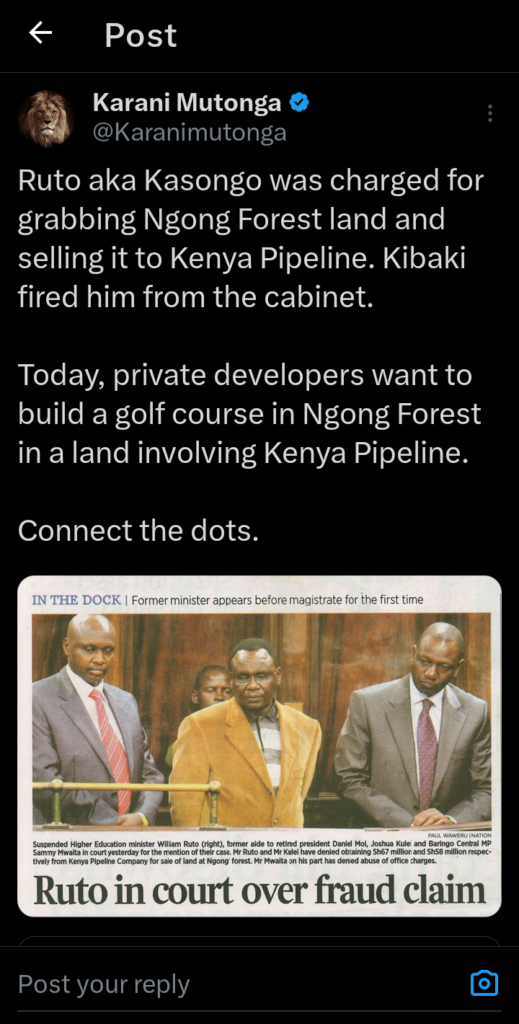Ngong Forest, located near Nairobi, Kenya, has faced challenges due to land disputes and development pressures.
He and others were accused of selling a portion of Ngong Forest to KPC for 272 million Kenyan shillings, with allegations that Ruto personally received 96 million shillings from the transaction.

This led to his suspension from the cabinet by President Mwai Kibaki.
In April 2011, Ruto was acquitted of these charges due to insufficient evidence.
In recent times, Ngong Forest has again become a focal point due to proposed developments.

Private developers have sought approval to construct a golf course and restaurant within the forest.
This proposal has been met with public outcry, as it threatens the integrity of the protected forest area.
Government agencies, including the National Environment Management Authority (NEMA), the Kenya Forest Service (KFS), and KPC, granted approvals for this project.
NEMA stated that it issued a conditional license because KFS and KPC did not oppose the project, which was planned on a wayleave.
The public’s reaction to these approvals has been overwhelmingly negative, with concerns about environmental degradation and the encroachment on protected land.
In response to the uproar, Cabinet Secretary Aden Duale suspended the licenses granted for the construction of the restaurant and golf course in Ngong Road Forest.
This decision underscores the government’s recognition of the need to protect natural resources and address public concerns.
The recurring issues surrounding Ngong Forest highlight the ongoing tension between development and conservation in Kenya.
While development projects can contribute to economic growth, they must be balanced with environmental preservation to ensure sustainable progress.
The involvement of government agencies in approving projects that threaten protected areas raises questions about the effectiveness of environmental governance and the commitment to upholding conservation laws.
The history of land disputes and proposed developments in Ngong Forest reflects broader challenges in balancing development with environmental conservation.
The actions of government agencies, including NEMA, play a crucial role in this balance.

It is imperative for these agencies to adhere strictly to environmental regulations and prioritize the protection of natural resources to prevent the degradation of vital ecosystems like Ngong Forest.





















Add Comment